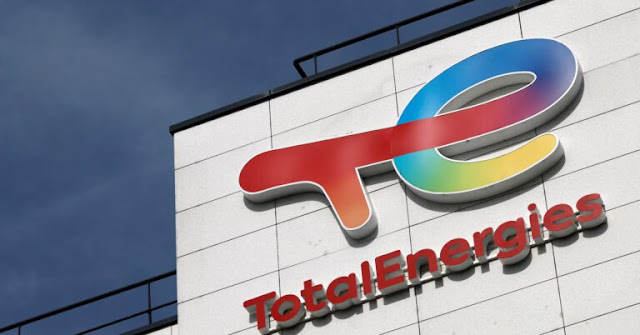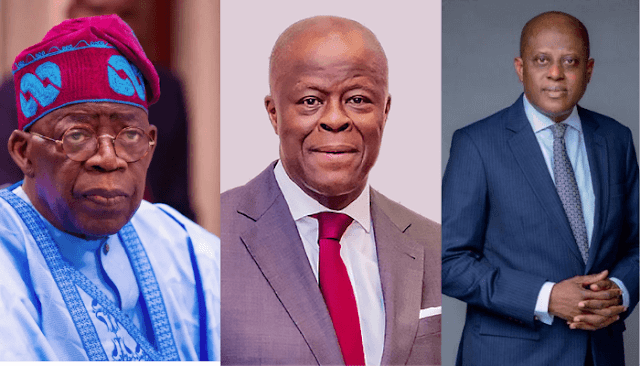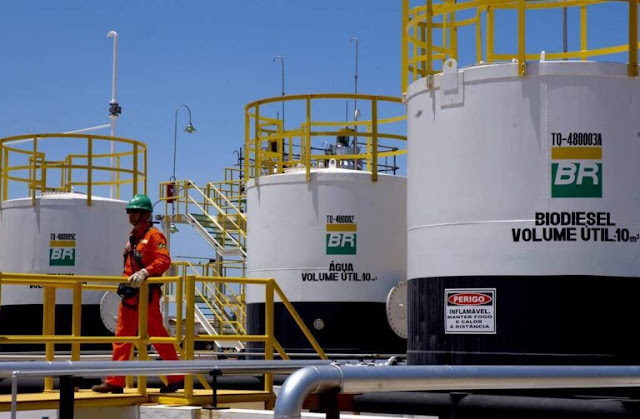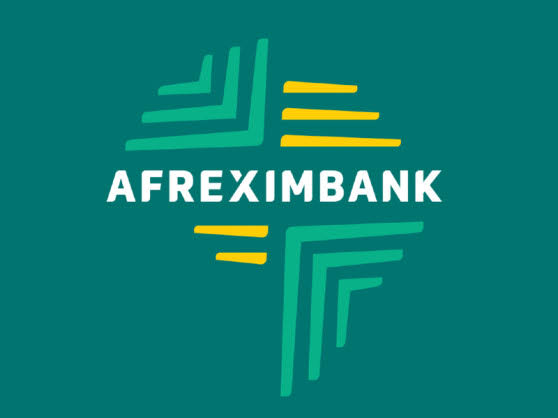In a significant development for Nigeria’s oil and gas sector, the Federal Government has reiterated its unwavering commitment to enhancing crude oil production through a combination of supportive policies, targeted incentives, and deepened collaboration with international oil companies (IOCs). This assurance was articulated during a high-profile courtesy visit by Mr. Nicolas Terraz, President of Exploration and Production at TotalEnergies, to Senator Heineken Lokpobiri, the Minister of State for Petroleum Resources (Oil), in Abuja on Thursday, August 28, 2025. The meeting underscored the government’s strategic vision to revitalize Nigeria’s oil industry, a critical driver of the nation’s economy, while fostering partnerships with global energy giants to unlock the country’s vast hydrocarbon potential.
Strengthening Nigeria’s Oil Production Ambitions
Nigeria, Africa’s largest oil producer, has faced persistent challenges in maintaining and expanding its crude oil output in recent years. Factors such as aging infrastructure, pipeline vandalism, oil theft, and underinvestment have constrained production, even as global demand for energy remains robust. Against this backdrop, the Federal Government’s reaffirmation of its commitment to boosting crude oil output signals a proactive approach to addressing these challenges and positioning Nigeria as a competitive player in the global energy market.
During the courtesy visit, Senator Lokpobiri emphasized the government’s dedication to creating an enabling environment for upstream investments. He highlighted the role of policy stability and fiscal incentives in encouraging IOCs to ramp up exploration and production activities. “Our support and incentives as a government have continued to encourage a production trajectory that aligns with our ambition to increase national output,” Lokpobiri stated. “We are committed to implementing deepwater incentives to ensure this progress is maintained.”
The Minister’s remarks reflect the government’s recognition of the oil and gas sector’s pivotal role in driving economic growth. Oil accounts for approximately 80 percent of Nigeria’s government revenue and over 90 percent of its export earnings, making it a cornerstone of the nation’s economy. However, production levels have fluctuated, with output dropping to as low as 1.2 million barrels per day (bpd) in recent years, compared to a peak of over 2 million bpd. The government’s target is to restore and sustain production at or above 2 million bpd, a goal that requires significant capital investment, technological expertise, and collaboration with IOCs.
TotalEnergies’ Role in Nigeria’s Energy Landscape
TotalEnergies, one of the world’s leading energy companies, has been a longstanding partner in Nigeria’s oil and gas sector. During the meeting, Mr. Nicolas Terraz provided an update on the company’s operations, highlighting its ongoing and future projects in the country. He confirmed the successful drilling of additional wells, which has enabled TotalEnergies to sustain its production levels in Nigeria’s challenging operating environment. This achievement underscores the company’s technical expertise and operational resilience, even as it navigates complex market dynamics.
Terraz also announced TotalEnergies’ divestment of its interest in the Bonga North project to Shell, a strategic move aimed at rebalancing the company’s portfolio in Nigeria. The Bonga North project, located in deepwater offshore Nigeria, is part of the broader Bonga field, one of the country’s most significant oil assets. The divestment reflects TotalEnergies’ efforts to optimize its operations by focusing on high-priority projects while transferring assets to partners with the capacity to manage them effectively.
Despite the divestment, Terraz reaffirmed TotalEnergies’ long-term commitment to Nigeria’s energy goals. “TotalEnergies is fully committed to supporting Nigeria’s energy ambitions. Our continued investment in projects like Ubeta demonstrates our long-term vision, even as we responsibly rebalance our portfolio with the divestment in Bonga North,” he said, as quoted in a statement issued by Nneamaka Okafor, the Special Adviser on Media and Communications to the Minister.
The Ubeta project, a major gas development in the Niger Delta, is a flagship initiative for TotalEnergies in Nigeria. It aims to boost domestic gas supply for power generation and industrial use while contributing to Nigeria’s liquefied natural gas (LNG) export capacity. The project aligns with the government’s push to leverage Nigeria’s vast gas reserves to drive economic diversification and reduce reliance on crude oil exports.
A Collaborative Approach to Upstream Investments
Senator Lokpobiri commended TotalEnergies for its reliability as a strategic partner, acknowledging the company’s contributions to both ongoing operations and new developments. He emphasized the importance of sustained capital injection into the oil and gas sector, warning that Nigeria’s production targets cannot be achieved without increased investment and drilling activities. “We are fully supportive of divestments where necessary, but there must be demonstrable capacity to manage assets being transferred,” Lokpobiri stated. “We expect every operator to invest in the assets they hold. However, where that is not feasible, farm-outs and partnerships remain viable options. We are open to dialogue that fosters consensus and delivers shared outcomes.”
The Minister’s call for sustained investment reflects the government’s broader strategy to reverse the decline in upstream activities. Nigeria’s oil and gas sector has seen reduced exploration in recent years, partly due to regulatory uncertainties and the high cost of deepwater operations. To address these challenges, the government has introduced a range of incentives, including tax breaks, royalty reductions, and streamlined licensing processes, to attract IOCs and local operators to invest in exploration and production.
The mention of “deepwater incentives” by Lokpobiri is particularly significant. Deepwater projects, such as those in the Bonga and Egina fields, are capital-intensive but hold immense potential for boosting Nigeria’s oil output. By offering fiscal incentives, the government aims to make these projects more attractive to IOCs, which possess the technical expertise and financial resources needed to develop deepwater assets. The success of these initiatives will be critical to achieving Nigeria’s production targets and maintaining its position as a leading oil producer in Africa.
The Petroleum Industry Act and Sector Reforms
The Federal Government’s commitment to boosting crude oil output is closely tied to the implementation of the Petroleum Industry Act (PIA), signed into law in 2021. The PIA represents a landmark reform aimed at overhauling Nigeria’s oil and gas sector by improving governance, attracting investment, and enhancing operational efficiency. Key provisions of the PIA include the commercialization of the Nigerian National Petroleum Company Limited (NNPC Ltd.), the establishment of new regulatory bodies, and the creation of a framework for host community development.
The PIA has introduced a more predictable fiscal and regulatory environment, which has been welcomed by IOCs like TotalEnergies. By providing clarity on issues such as royalties, taxes, and licensing, the PIA has reduced some of the uncertainties that previously deterred investment. However, challenges remain, including the need to address security concerns in the Niger Delta, where pipeline vandalism and oil theft have disrupted operations.
The government’s support for divestments, as articulated by Lokpobiri, is another key aspect of the PIA’s implementation. In recent years, several IOCs, including Shell, ExxonMobil, and TotalEnergies, have sought to divest assets in Nigeria, particularly onshore and shallow-water fields, to focus on more profitable deepwater and gas projects. The government has emphasized that such divestments must be accompanied by a clear demonstration of the acquiring party’s capacity to manage the assets effectively, ensuring that production levels are maintained or increased.
Balancing Domestic and Global Energy Needs
The meeting between Lokpobiri and Terraz reaffirmed the close partnership between the Federal Government and IOCs in unlocking Nigeria’s oil potential. This partnership is critical not only for meeting domestic energy requirements but also for fulfilling Nigeria’s commitments to the global market. As a member of the Organization of the Petroleum Exporting Countries (OPEC), Nigeria has a quota to maintain, which requires sustained production and export capacity.
Domestically, Nigeria faces significant energy challenges, including recurrent fuel shortages and reliance on imported refined petroleum products. The government’s push to revive the country’s four state-owned refineries, coupled with investments in projects like Ubeta, aims to address these issues by boosting domestic refining capacity and gas supply. At the same time, Nigeria’s role as a major oil exporter requires a delicate balance to ensure that global commitments do not compromise local needs.
TotalEnergies’ continued investment in Nigeria, as highlighted by Terraz, demonstrates the company’s confidence in the country’s long-term potential. The Ubeta project, for example, will contribute to Nigeria’s gas monetization strategy, which is a priority under the government’s “Decade of Gas” initiative. By leveraging its vast gas reserves, Nigeria aims to drive industrialization, power generation, and export revenue, creating a more diversified energy economy.
Economic and Social Implications
The Federal Government’s commitment to boosting crude oil output has far-reaching implications for Nigeria’s economy and society. Increased oil production would generate additional revenue for the government, enabling investments in critical areas such as infrastructure, healthcare, and education. It would also strengthen the naira by boosting foreign exchange earnings, which have been under pressure due to currency depreciation.
Moreover, the revitalization of the oil and gas sector could create thousands of jobs, both directly and indirectly, particularly in the Niger Delta region, where many oil and gas operations are based. The PIA’s provisions for host community development aim to ensure that local communities benefit from oil activities through funding, infrastructure projects, and employment opportunities. By fostering inclusive growth, the government hopes to address longstanding grievances in the region and reduce incidents of unrest and vandalism.
However, the success of these initiatives will depend on the government’s ability to maintain policy stability and address security challenges. The Niger Delta remains a volatile region, with issues such as militancy, oil theft, and environmental degradation posing risks to operations. The government’s collaboration with IOCs and local stakeholders will be critical to creating a secure and conducive environment for investment.
Stakeholder Reactions and Industry Outlook
The meeting between Lokpobiri and Terraz has been widely viewed as a positive signal for Nigeria’s oil and gas sector. Industry analysts have praised the government’s proactive approach to engaging with IOCs and fostering an investment-friendly environment. TotalEnergies’ commitment to projects like Ubeta and its responsible divestment in Bonga North have been cited as examples of how IOCs can balance commercial objectives with Nigeria’s energy goals.
On social media platforms like X, discussions about the meeting reflect optimism about the potential for increased oil production, but there is also skepticism about the government’s ability to deliver on its promises. Nigerians have expressed frustration with past failures to revive the refineries and address fuel shortages, and many are calling for transparency and accountability in the implementation of oil sector reforms.
Looking ahead, the oil and gas sector is expected to remain a key driver of Nigeria’s economy, despite global shifts toward renewable energy. While the world transitions to cleaner energy sources, oil and gas will continue to play a significant role in meeting global energy demand, particularly in developing economies like Nigeria. The government’s focus on gas development, as evidenced by projects like Ubeta, positions Nigeria to capitalize on the growing demand for natural gas as a transitional fuel.
Challenges and Opportunities
The Federal Government’s commitment to boosting crude oil output presents both opportunities and challenges. On the one hand, Nigeria’s vast hydrocarbon reserves, coupled with a supportive policy environment, offer significant potential for growth. IOCs like TotalEnergies bring the technical expertise and capital needed to unlock this potential, while partnerships with local operators can enhance capacity and create shared value.
On the other hand, the sector faces persistent challenges, including security risks, regulatory uncertainties, and global market volatility. The high cost of deepwater operations and the need for sustained investment require a delicate balance to ensure profitability for operators and benefits for the government and citizens. Moreover, the government must address public concerns about fuel pricing and subsidies, which remain a politically sensitive issue.
Conclusion
The Federal Government’s reaffirmation of its commitment to boosting crude oil output, as articulated during the meeting between Senator Lokpobiri and TotalEnergies’ Nicolas Terraz, marks a pivotal moment for Nigeria’s oil and gas sector. By fostering collaboration with IOCs, implementing supportive policies, and encouraging sustained investment, the government aims to reverse the decline in oil production and position Nigeria as a leading energy producer in Africa.
TotalEnergies’ continued investment in projects like Ubeta and its responsible divestment in Bonga North demonstrate the potential for mutually beneficial partnerships between the government and IOCs. As Nigeria navigates a complex economic and global energy landscape, the success of these initiatives will depend on policy stability, stakeholder engagement, and a commitment to addressing longstanding challenges in the sector. With strategic execution, Nigeria’s oil and gas industry could drive economic growth, enhance energy security, and deliver lasting benefits to its citizens.








